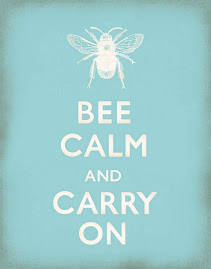So, I've been particularly inspired to seek out new ways to green my life recently - beyond the usual suspects. I felt as though I'd read every list about the obvious solutions, and I care more about finding the subtle or often-overlooked tools for making improvements. Here are a few - other ideas?
Incidentally, I realized that most of these are office rather than home related. I had done a pretty good job of controlling my own life, it's outside influences that are more difficult.
Being organized
Revelation: getting my green act together didn't take commitment (had that), it took organization. Just like making mornings go smoother at our house by laying out clothes, packing lunches and prepping school/work/gym/library bags the night before, I have to take a few steps every night to make sure the next day goes by in a green fashion. It's when I'm disorganized or don't plan ahead that I find myself in a situation that generates waste or less than desirable behavior (i.e. buying a plastic bottle of water).
So, each night I set out the next day's coffee/drink mug and pre-fill a water bottle and place it in the fridge so I have cold water ready to go. We have multiple stainless water bottles for each family member so there's never a reason to go without. I was very inspired by a friend who met me at a restaurant and brought in his own cup, and have taken his lead to avoid styrofoam whenever possible. From local restaurants to Subway (p.s. don't forget to decline the plastic bag and all that packaging!), most are willing to allow you to use your own cup. They'll warn you in a cautionary tone that they still have to charge you for a drink or (gasp!) their largest size, but weren't you going to pay for it anyway?
On the preparedness front, I also force myself to return a stockpile of reusable shopping and produce bags to the car daily if necessary, so I'm never caught without my own bag. I find it is easier to remember them for groceries, tougher when you dash into a gift or book store. After a few times making myself carry lots of loose items out without a bag as self-punishment for forgetting my own, I've been in the habit for several years.
Cutting back on junk mail
Obviously, I've removed not only myself but the rest of our family from as many mailing lists as possible through tools such as www.dmachoice.org. In fact, for a really thorough blog post on that subject, check out Simple. Organized. Life. http://simpleorganizedlife.com/how-i-went-99-9-paperless-at-home/. However, a number of items still slip through the cracks, and most specifically I'm frustrated by the number of mailings to "supervisor" we receive at the office. I've found in that case that unsubscribing doesn't work, and unfortunately the solution is to be slow and systematic: reach out to each organization.
Since I'm relatively new as director of our organization, it is taking some time to get my predecessor off lists and encourage the same from other staff. As an example, in today's mail received a random laminated products catalog (52 pages) from Connecticut, a "green" (ha!) jobs journal (28 pages) and a blanket seminar mailing in addition to local offers and invitations. It takes time to check each website and ask to be removed (and ask for email confirmation for a track record), but we're slowly chipping away at the number of mailings received at the office. Most people are good about making this change in their personal lives, but be systematic about it at work as well. I've seen mailings (and faxes - gasp!) continue to come to organizations in the name of people who haven't worked there for a decade.
Influencing others
What doesn't work for me (preaching) doesn't work for anyone else. I've found a few ways to impart change without being a martyr recently. For example, at my organization's board and other monthly meetings, we moved first from twelve meetings a year with eighteen meeting attendees receiving printed meeting packets of 30+ pages (no exaggeration) by mail to holding meetings just six times per year (less gas, better use of their time) with packets sent in advance electronically. Then, last month we took the big leap: attendees are now advised that they will receive packets in advance and we will not print copies for them - they must print their own (which we discourage) if they want a hard copy, and we project the agenda, minutes and financial reports for the meeting. We've had not a single complaint - in fact, much enthusiasm.
Likewise, most meetings that I run for volunteer efforts are conducted this way, and I use my own electronic copy of the agenda whenever possible. Of course, I still take notes, but I maximize the space and recycle or file (i.e. scan) the paper before recycling.
Our organization is also asked to participate in a number of community events each year (farmers' markets, children's festivals, expos, teacher fairs and the like). We do so enthusiastically, but of course try to minimize the paper products and junk (tchotchkes) we distribute. We've also taken a small but hopefully influential step: we simply ask event organizers if recycling will be provided at the event. If it isn't, we offer to help coordinate it. Hopefully, it influences these individuals to make considerations about the way they execute their event, and at the very least, it makes clear our commitment and further develops our brand.
On a similar note, I recently had the privilege of attending the national ANCA summit (Association of Nature Center Administrators), where I participated in a great session on "greening your special event" led by Amy Yeakel of the Squam Lakes Natural Science Center (www.nhnature.org). Here's a link to notes from that session - while some may not be relevant outside our profession, I was very inspired and hope that we can incorporate many of them into our signature Call of the Wild event on April 16, 2011 and beyond. We've already developed an event planning subcommittee to focus on the overall footprint of the event, and believe it will be an education for us as well as our attendees so that we can improve over time!
Greening Your Special Event (from ANCA Summit 2010, www.natctr.org): http://bit.ly/aooSsf
Wednesday, August 25, 2010
Little Green Steps
Subscribe to:
Post Comments (Atom)





No comments:
Post a Comment